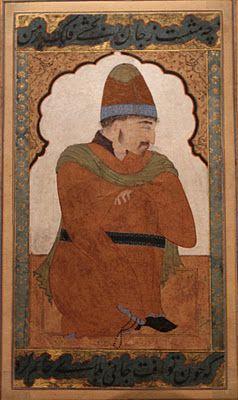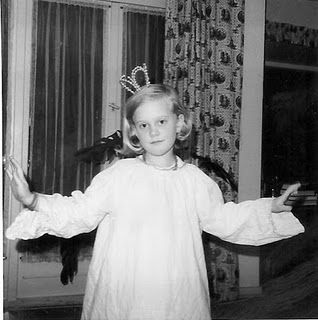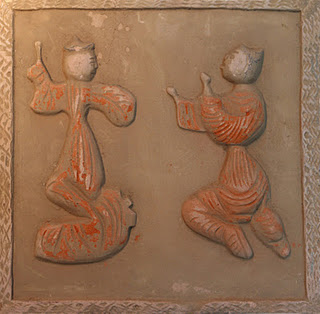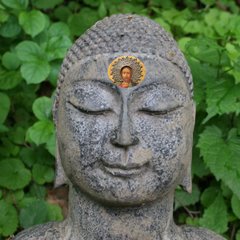Late 15th century calligraphic text, Poems of Sa'di and Hafiz
Metropolitan Museum of New York, Islamic wing
What does it mean to be mindful, to have a conscious practice?
I don't see that almost everything I do begins to fall into habit. Most of what I am consists of imitation and repetition. For example: I hear someone else say something intelligent about their spiritual practice, and the next thing you know, I am repeating the words that they used, and perhaps even the very things that they said. This problem is like an infectious disease; once the virus is in me, it multiplies and spreads both in myself, and to other people.
The next thing I know, everyone around me in my community is saying more or less the same things, using the same words.
In one way, this isn't a bad thing, because commonality helps to build community. But on the other hand, it makes everything too easy for me. I sound like I belong. I sound like I am working in the same way as others. I sound– horrors! –like I know what I am talking about. Others nod their heads in agreement when I use the right words and say the right things.
All of this is just a cleverer way of falling asleep. My language practice, like the rest of me, also needs to be conscious and sensitive. That is to say, I need to use my own words to describe my own experience–not just lean on the associations I encounter like a crutch. This requires a certain presence of Being. The thinking part needs to actively engage and precisely see what it is saying, at the same time that a sensation of the body is maintained. The feeling part needs to be used carefully gauge the relationship between the body and the mind, and intuit the intelligence that is necessary to, in the moment, say something that is both precise, accurate, and original.
Of course this is a quite difficult practice. How much easier it is to just say the right things and sound like other people!
I fall into habits so easily that I don't see they are habits. This is, in fact, the whole point of understanding my habits– that I am completely identified with them. I presume them to be creatures emanating from a source of awareness, when in fact, they aren't.
Once formed, habits deftly camouflage themselves as awareness practices. This is why I need to be on my toes– to practice as if my hair were on fire– in order to remain active. If my hair is on fire, I am dancing around, swatting at it, looking for water, rolling on the ground– in other words, I am not taking a single approach: I am in constant movement, attempting to extinguish the flames.
Mindfulness can extend, in its intricacy, to the immediate use of language within the moment. In order to do this it is necessary to observe exactly how I am– insofar as I can determine that– within a given moment, as I speak. If I keep a close attention to what I say, and I am in the middle of it as it is said, I am much less likely to lose track of what I am saying. This kind of precise insight does not need to be a technical exercise– it is on the order of what is absolutely necessary in life- that is, my response.
Michel de Salzmann mentions that “what really defines and shows us a man is his response.” (Two Essays," pg. 6, Michel de Salzmann, Morning Light Press, 2011.)
In general, I'm often lazy about the use of language. I frequently see myself adapting the language of others, using it in a mirroring process that helps form bonds with others, but otherwise demands very little of me. It's much easier to engage in this habit than to attempt to use language precisely and with an active intelligence. To do so is to engage in a practice of the mind much like the Gurdjieff movements: one must be in the moment, one must see the movement of the mind, one must participate. This participation in response– an active participation– is a measurement of how present we are.
It's useful to watch the use of language for other reasons. It can help me see what parts of me are active. For example, when I attend carefully to the language I'm using, I can sense it in my body; I can see whether it is habitually associative, whether it is emerging mostly from the emotional part, whether it is entirely in the head, while the there is a grounding element– a kind of inner gravity– that connects it to the body. All of this can be an interesting study, but it requires a close attention that is not at all necessary when I speak. Speaking comes out of my machine without prompting; it is easy, it is automatic, it is mechanical.
In fact, if I'm fortunate enough to have a bit of presence, I may be able to observe myself speaking and see that the process usually comes out of a part that is probably not much more intelligent than a computer. My habitual parts are quite able, and know how to respond to 99% of what takes place in life without any need for active participation. That other 1%–
that is where the rubber meets the pavement.
How can I use a more active intelligence to become more precise in my language, in the moment?
May our prayers be heard.












